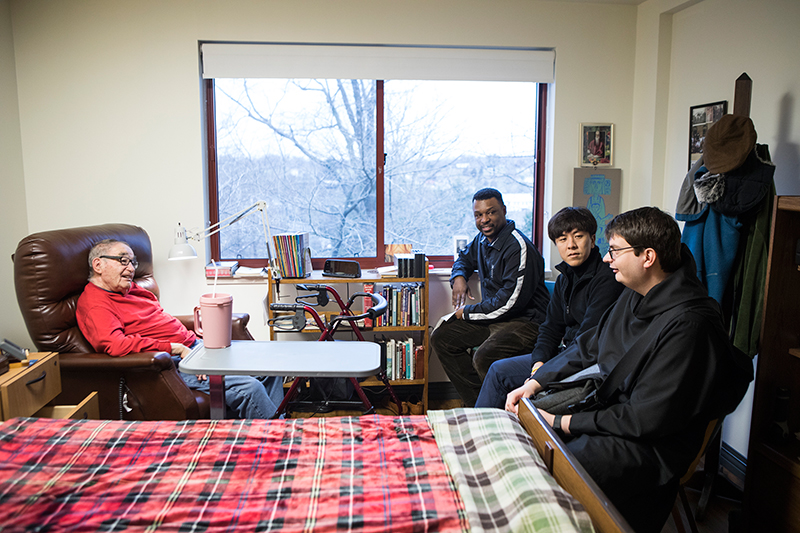An Epiphany People
Fr. Adrian Burke, OSB
Thursday, January 9, 2020

"Care of the sick must rank above and before all else, so that they may truly be served as Christ, for he said: ... 'What you did for one of these least brothers you did for me' (Mt. 25:40)."
Rule of St. Benedict 36.1-3
Epiphany, like Christmas, is more than just a day in the liturgical calendar. In my view, Epiphany is a time for us to focus our attention in a particular way on the Incarnation of God as Jesus Christ.
Christmas is not over when the sun goes down on December 25. The liturgical season of Christmas continues until the feast of the Baptism of the Lord, which is celebrated this year on January 12. This past Sunday we celebrated Epiphany, a time to reflect on how God “shows forth” (epiphany means to manifest or display in a conspicuous fashion). Christ manifests God’s living presence as a loving, forgiving and accompanying reality, a light by which we walk in faith and charity.
So in the spirit of Epiphany, I’d like to focus on the theme of “showing forth” in terms of our monastic witness. As I’ve written before, one of the main reasons monastic life exists in the Church is to give witness. To what? Well, to Christ, of course, but also to the kingdom of God – that purpose for which God became human as Jesus, and which Jesus proclaimed as the mainstay of his good news.
Monks strive to realize the kingdom, to give it flesh, so to speak, by embracing the mindset of Jesus and practicing what He taught through his proclamation and demonstration – Jesus’ own personal witness to what He believed was his Father’s will for us and for the whole world.
An essential part of Jesus’ mission entailed teaching by verbal proclamation, as well as by how he treated and related others. For Jesus, the kingdom of God is a communion, a way of living together that bridges gaps, reconciles division, and “gathers what has become scattered” (Mt 12:30; Lk 11:23).
To realize God’s will for us requires that we strive to let peace be your quest and aim (Prol.17), to be clothed with faith and the performance of good works (Prol. 21), and to treat not only guests as Christ (RB 53.1), but the vulnerable, especially the sick, the elderly, and the young, whom St. Benedict considers “least” (most vulnerable) in the community and therefore truly to be served as Christ (RB 36.1; cf. also RB 37).
This generous and loving way of behaving toward others is the most important way of demonstrating (“showing forth”) that we are citizens of God’s kingdom. This is why hospitality is so central to Benedictine monastic culture and spirituality.
Being hospitable, i.e. receptive and caring of others, especially those in need, is a way of shining the Light of Christ into a world darkened by division, discord, fear and insecurity – attitudes that flow from a wounded, sinful nature. Christians are called to be “Epiphany people,” children of the Light (cf. 1Thes 5:5 and Eph 5:8), by allowing Christ to radiate outward from us, and as us, into our world. By God’s assistance, may it be so!